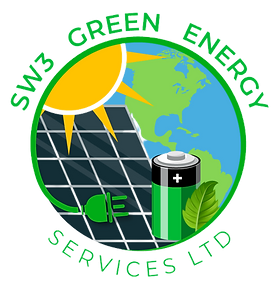Title: Do I Still Pay for Electricity If I Have Solar Panels in the UK?
Introduction: In recent years, solar panel installations have become increasingly popular in the UK as homeowners seek to reduce their carbon footprint and lower energy bills. One common question among those considering solar energy is whether they still need to pay for electricity from their utility provider if they have solar panels installed. In this blog, we’ll explore how solar panels impact your electricity costs in the UK and clarify whether you still need to pay for electricity with solar panels.
Understanding Solar Panel Economics: Before diving into whether you still need to pay for electricity with solar panels, it’s essential to understand how solar panel systems interact with the grid and your energy usage:
- Solar Energy Generation: Solar panels generate electricity by converting sunlight into usable energy through photovoltaic cells. Any excess electricity generated by your solar panels is typically exported to the grid for credits or compensation.
- Grid Connection: Most residential solar panel systems in the UK are connected to the grid, allowing homeowners to draw electricity from the grid when solar production is insufficient and export excess energy back to the grid for credits.
- Feed-in Tariff (FIT) Scheme: Under the Feed-in Tariff scheme, homeowners with solar panels are paid a tariff for every unit of electricity generated by their solar panels, whether consumed on-site or exported to the grid. This provides an additional source of income for solar panel owners.
Do You Still Pay for Electricity? The answer to whether you still need to pay for electricity with solar panels depends on several factors:
- Self-Consumption: If your solar panels generate enough electricity to meet the majority of your household’s energy needs, you may significantly reduce your electricity bills or even eliminate them entirely. Any excess energy generated can be exported to the grid for credits.
- Grid Usage: While solar panels can offset your electricity usage during daylight hours, you may still need to draw electricity from the grid during periods of low sunlight or at night when your solar panels are not generating power.
- Grid Connection Fees: Even if you generate a significant portion of your electricity with solar panels, you may still incur grid connection fees or standing charges from your utility provider for access to the grid and other services.
- Energy Storage: Installing battery storage solutions, such as solar batteries, allows you to store excess energy generated by your solar panels for use during periods of low sunlight or at night. Battery storage systems can further reduce reliance on the grid and electricity costs.
Conclusion: While solar panels can significantly reduce your electricity bills and provide a source of income through feed-in tariffs, you may still need to pay for electricity from your utility provider depending on your energy usage and grid connection fees. By maximizing self-consumption, optimizing energy efficiency, and exploring options such as battery storage, you can further reduce your reliance on the grid and enjoy greater energy independence with solar panels.
At SW3 Green Energy, we specialize in designing and installing customized solar solutions for residential properties in the UK. Contact us today to learn more about how solar panels can help you save money and reduce your environmental impact.
Keywords: Solar panels, electricity bills, grid connection, feed-in tariff, energy self-consumption, energy storage, renewable energy, SW3 Green Energy
